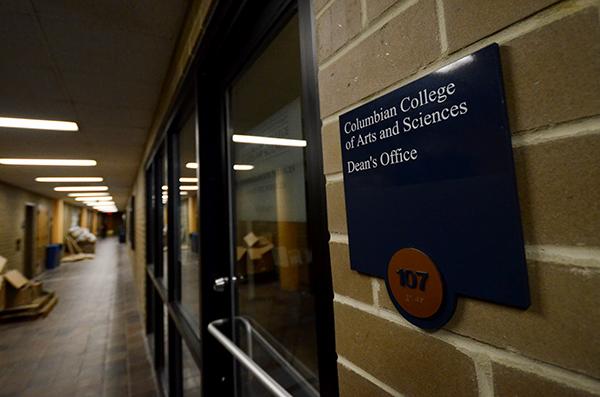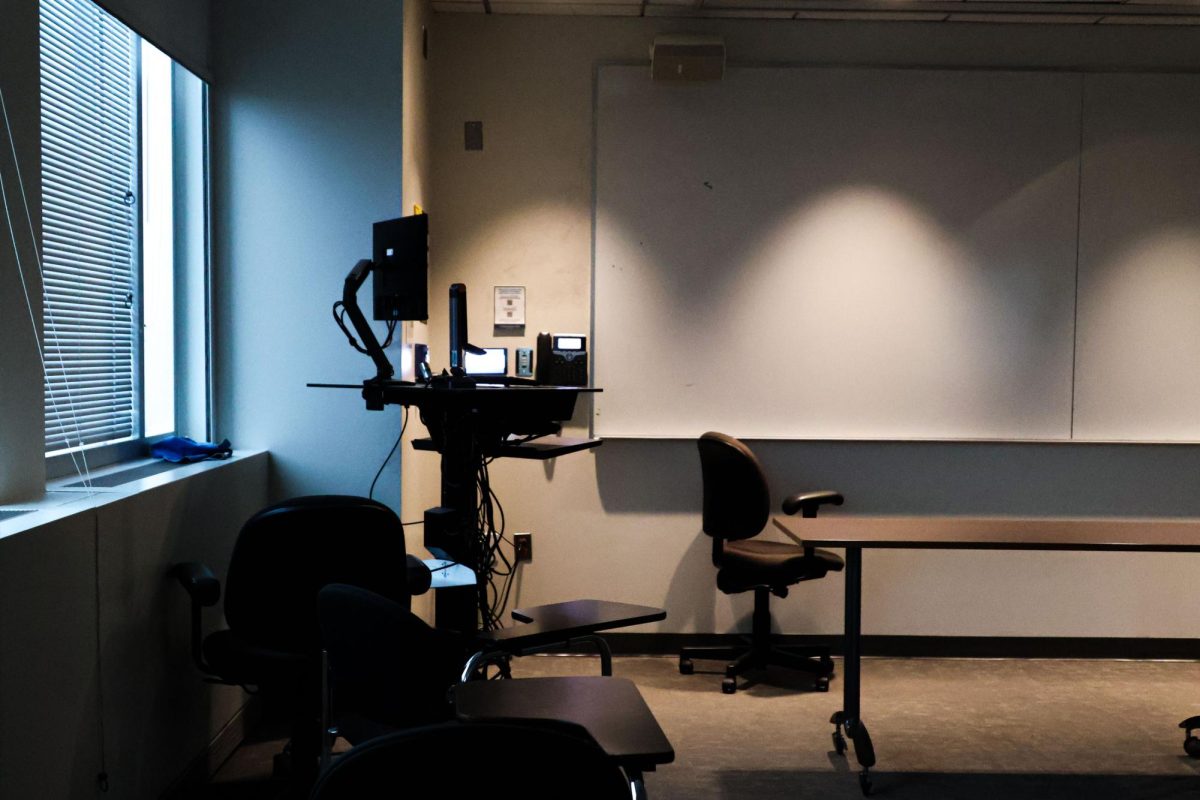Updated: June 12, 2015 at 3:32 p.m.
Each student in the Columbian College of Arts and Sciences can now choose from a lineup of academic advisers.
University officials announced last month that advising for CCAS students has been restructured to give each student an option of five advisers with whom to make individual appointments, also creating new opportunities like group advising sessions and workshops.
The change, which occurs officially on July 31, comes after students complained that they had a hard time scheduling advising appointments, especially after a number of CCAS advisers left the University last year.
Director of Undergraduate Advising in CCAS Michelle Steiner said students will be divided into three groups by last name and each group will have a choice of five advisers — a change from the current system in which students are assigned one adviser as freshmen but can schedule appointments with any adviser. The groups of students are called PODs, which stands for “place of discovery,” Steiner said.
Students can also take advantage of communal office hours, group advising sessions and workshops within their specific groups for a more comprehensive advising experience.
“Students will be able to engage in meaningful interactions with both POD advisors and POD peers such that they are contributing members to a community and a welcoming academic environment,” Steiner said.
Steiner added the change would help advisers know students’ academic standings better, so students “don’t have to re-tell their stories each time they arrive at our door.”
Advisers will meet with other advisers to learn about the status of different students and determine more effective strategies to reach out to students.
Steiner said the small groups will give students the chance to work together more often. She also said the office will conduct an assessment at the end of every semester.
After a multiple members of the CCAS advising staff departed last year, then-freshman Sen. Josh Kirmsse, CCAS-U, and sophomore Miguel Mejia, the SA’s assistant director of new students, met with Steiner and said peer advising would give students the chance to seek help with scheduling without having to work with an adviser directly.
Kirmsse’s proposal modeled a system after a similar program in the Elliott School of International Affairs, where student advisers hold office hours four days a week for students to discuss topics like four-year plans and which courses could be most interesting to them.
Kirmsse said when they had the chance to meet with officials in the office of academic advising, the office was already considering some type of peer advising and took into consideration students’ ideas about how it could be implemented.
While the students’ proposal was not directly included in the group design, Kirmsse said the SA will continue to work with CCAS to introduce peer advising options.
“Collective efforts such as POD help share the workload and ensure that students are getting the best counseling,” Kirssme said in an email. “An advisor can almost never definitively say that one decision is better than the other, or fix any academic crisis you might have with the click of the button. But, I think this new format will allow them to fulfill their role even more efficiently.”
Nancy Shockley, the director of advising for pre-major studies at the University of Alabama’s College of Arts and Sciences, said the school has used a peer advising program for more than five years. She said the system makes better use of advisers’ and students’ time.
“It is so helpful to our advising staff to have these experienced students to answer questions from nervous parents and students,” Shockley said.
This post was updated to reflect the following correction:
The Hatchet incorrectly reported that the CCAS advising office will offer peer advising in addition to the other changes. While students will be able to interact with each other during the small group sessions, there will be no direct peer advising options. We regret this error.







